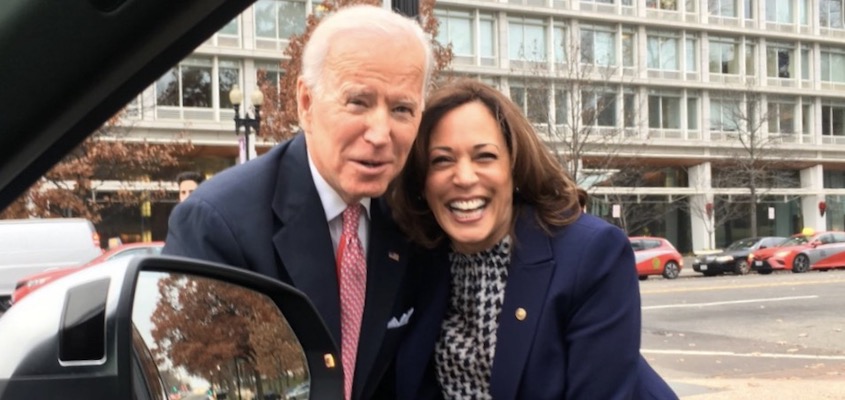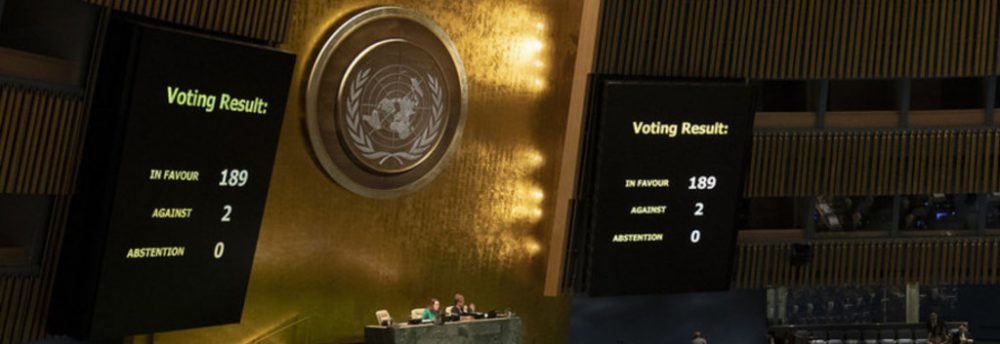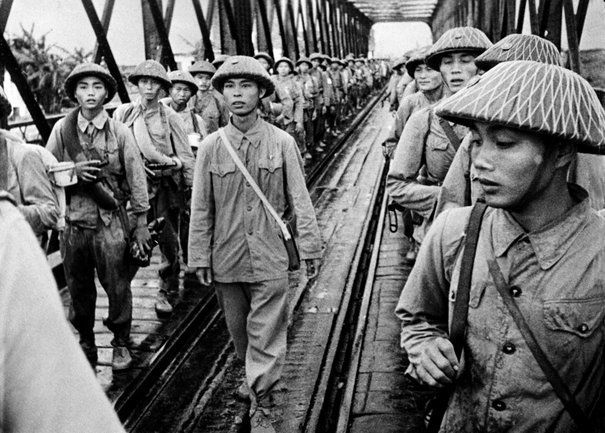Source: Black Agenda Report
Glen Ford, BAR Executive Editor 27 Aug 2020

Biden Offers Nothing But More War, Austerity and White Supremacy – Without Trump
Biden is an unreconstructed racist and warmonger who has been in the forefront of austerity, and Harris is a party hack and mass Black incarcerator who became a prosecutor with police union endorsement.
“Biden’s acceptance speech put forward not one word that hinted at programmatic change on racial matters.”
The corporate Democrats are once again running as the Not-Trump Party, the second consecutive election in which they have succeeded in suppressing every issue except the fitness for office of one very wretched man. The only way a party wholly-owned by oligarchs can deflect attention from its own culpability in dragooning its constituents into a Race to the Bottom amid never ending war, is to set up a straw man to be knocked down, leaving the machinery of racial capitalism and armed-to-the-teeth imperialism intact — Hillary Clinton’s gambit in 2016.
She lost, but the oligarchy did just fine under the Orange Menace, as stocks and profits skyrocketed. In the interim, however, popular demands for relief from the duopoly’s bipartisan regime of austerity and war escalated, and a Black-led movement took to the streets in unprecedented numbers. China’s economy, which had already eclipsed the United States in purchasing power parity , continued to roar ahead, as Beijing countered U.S. military encirclement with the most ambitious multinational infrastructure project in world history: the Belt and Road initiative, formerly the New Silk Road.
“Popular demands for relief from the duopoly’s bipartisan regime of austerity and war escalated, and a Black-led movement took to the streets in unprecedented numbers.”
With the bulk of the U.S. ruling class and their servants in the national security apparatus now aligned with Democrats, Trump was made the scapegoat for both Black anger at institutional racial oppression and for imperial decline. Black Democratic elected officials played their assigned role, waving American flags as they pretended that only Trump stood in the way of racial “healing” in a nation born of native genocide and Black enslavement. Recent history was quickly rewritten, positing the rise of Trump as the demon who taunted Blacks into resurrecting a grassroots movement that had been dormant for two generations, when in fact the Black Lives Matter phenomenon arose to demolish a bipartisan Mass Black Incarceration regime under his predecessor, the First Black President.
Having strangled the anti-austerity (but loyal imperialist) internal challenge from Bernie Sanders, the oligarch-aligned Democrats and their media chose Joe Biden as front man: a political hack with impeccable corporate credentials and an architect of the “New Jim Crow” and white northern massive resistance to Black urban intrusion. His Black female running mate is a pure product of the corporate Democratic machine, who launched her electoral career with the endorsement of police unions.
But neither of them is Trump, and that’s all that matters.
“Trump was made the scapegoat for both Black anger at institutional racial oppression and for imperial decline.”
With Biden, the “white working class” champion carrying the corporate torch, there will be no talk of baskets of “deplorables” – because he is a certified denizen of the basket. Rather, Biden promised in his acceptance speech to “choose a different path, and together, take this chance to heal, to be reborn, to unite. A path of hope and light.”
Trump is darkness, the Democrats are light – ad nauseum for 3,000-plus meaningless words.
Biden acknowledges that the U.S. responded to the Covid-19 epidemic with “the worst performance of any nation on Earth.” But it was all the fault of the unmasked man, Trump. The methodical privatization and shrinkage of the public health system, a thoroughly bipartisan policy, had nothing to do with mass death. The austerity regime, of which Biden is a founding member, which apportions health care based on race and class, is blameless. There can be no true national health care system absent a single payer program, but Biden vowed to veto Medicare for all if it ever crosses his presidential desk. Biden joins Trump in scapegoating China for the coronavirus, promising “we will never again be at the mercy of China and other foreign countries in order to protect our own people.” Yet, he is the light.
“There can be no true national health care system absent a single payer program, but Biden vowed to veto Medicare for all.”
Biden assures us that his “economic plan is all about jobs, dignity, respect, and community” — a claim that flies in the face of his history as budget-slasher. As journalist Branko Marcetic writes, “Biden is uniquely susceptible to budget-cutting dogma. He quickly became a fiscal hawk after entering the Senate in 1972, introducing the Federal Spending Control Act five years later to potentially put all federal spending programs on the chopping block, and musing that Reagan’s 1980 victory was ‘more consistent with the budgetary thrust that a guy like me … has been going for.’”
In his speech, Biden called Social Security a “a sacred obligation, a sacred promise made.” But, again citing Marcetic, Biden has proposed to means-test Social Security and, from the 1980s on “has called for and introduced legislation aimed at slashing federal spending, including by cutting Medicare and Social Security.” Vice-President Biden was point man for Barack Obama’s partially consummated “Grand Bargain” with Republicans, during which the administration offered four trillion dollars in cuts, mostly to social programs, including Social Security – a program that Obama put on the cutting table, along with Medicaid and “all other entitlements” at the very beginning of his presidency.
Biden has always been a soldier for austerity, a war against the poor. Why should anyone believe he has reversed course in his old age?
“Biden was point man for Barack Obama’s partially consummated ‘Grand Bargain’ with Republicans.”
Biden is an unreconstructed racist, as is proven every time he makes a remark even remotely related to race. His acceptance speech put forward not one word that hinted at programmatic change on racial matters. However, he did mention the name of George Floyd’s daughter, and seemed to think that John Lewis’ ghost will cause us all to “see the light.”
But Russia shall be consigned to darkness, along with Trump. Biden repeated the wholly unsubstantiated and historically bizarre charge that Moscow put “bounties on the heads of American soldiers” in Afghanistan, despite Russia’s longtime and invaluable assistance to maintain the U.S. presence in that country.
War. Austerity and White Supremacy are all that Biden/Harris offer – but without Trump. If that’s enough for you, then say “Hallelujah” — and then tighten your belts and pass the ammunition.
BAR executive editor Glen Ford can be contacted at Glen.Ford@BlackAgendaReport.com
COMMENTS?
Please join the conversation on Black Agenda Report’s Facebook page at http://facebook.com/blackagendareport









 Viet Minh troops enter Hanoi, 1945
Viet Minh troops enter Hanoi, 1945